The unnoticed trend that worries Europe’s counter-terrorism agencies
Limited border checks also means potential pipeline for weapons
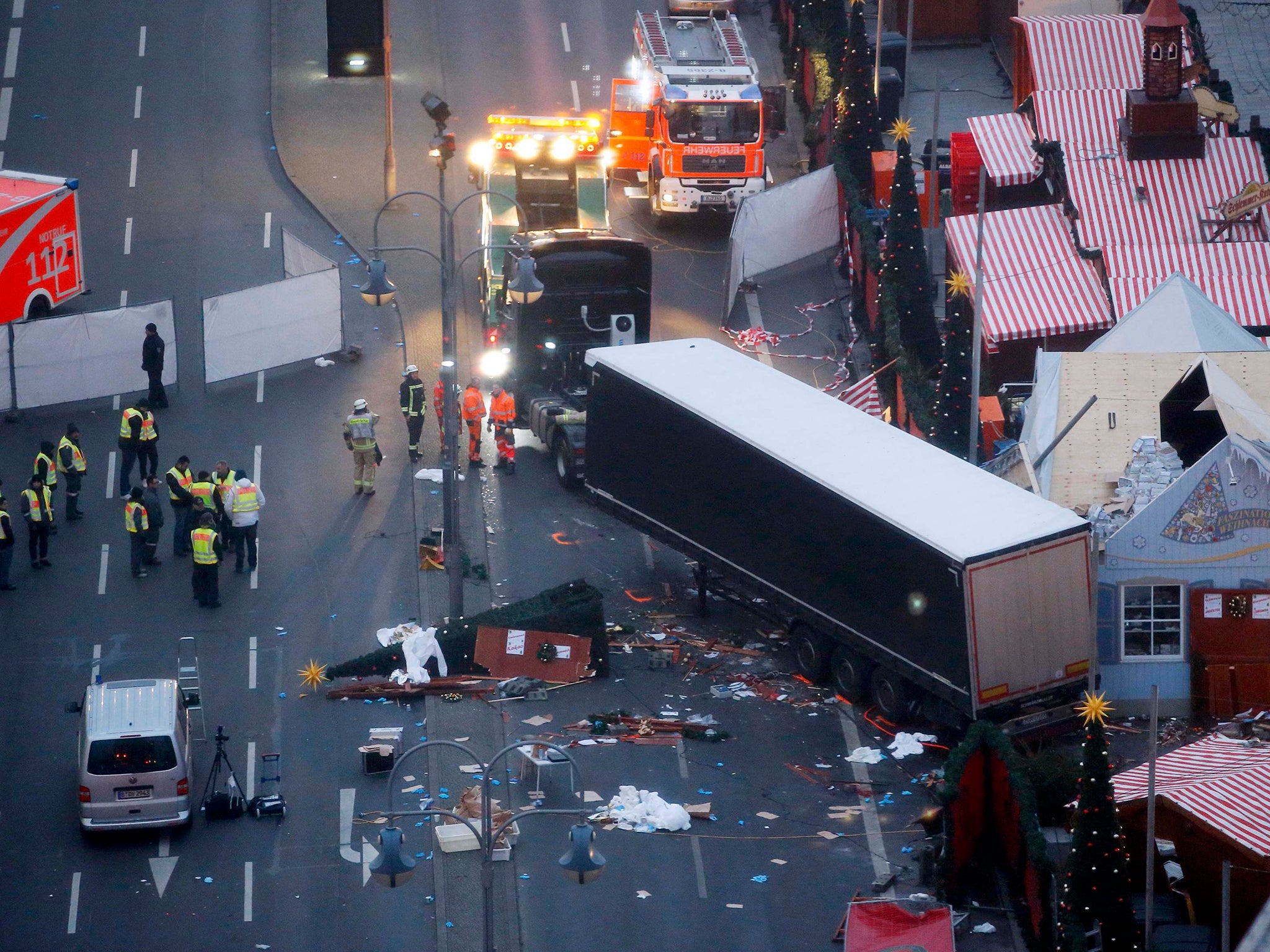
Your support helps us to tell the story
From reproductive rights to climate change to Big Tech, The Independent is on the ground when the story is developing. Whether it's investigating the financials of Elon Musk's pro-Trump PAC or producing our latest documentary, 'The A Word', which shines a light on the American women fighting for reproductive rights, we know how important it is to parse out the facts from the messaging.
At such a critical moment in US history, we need reporters on the ground. Your donation allows us to keep sending journalists to speak to both sides of the story.
The Independent is trusted by Americans across the entire political spectrum. And unlike many other quality news outlets, we choose not to lock Americans out of our reporting and analysis with paywalls. We believe quality journalism should be available to everyone, paid for by those who can afford it.
Your support makes all the difference.Germany is on edge once again as investigators try to stitch together the motive of a driver who ploughed a truck into a Christmas market in Berlin on Monday, killing 12 people in what German authorities described as a likely “act of terrorism.”
But new data shows that European authorities aren't just guarding against terror plots using weapons like trucks or bombs. They are also concerned about a more conventional threat: illegal firearms that may be increasingly easy for suspected terror networks to obtain.
According to the International Center for the Study of Radicalization and Political Violence at King's College London, criminals-turned-terrorist suspects are becoming a more common problem. The research centre collected extensive data on 79 recent European militants with criminal pasts. About 80 percent of those involved in recent terrorism plots had criminal convictions.
The researchers fear that extremists with criminal pasts could plan large-scale attacks more easily because of underworld contacts and previous experience dodging the law. “Because of the changing profiles of terrorists, it is easier and cheaper for them to obtain firearms,” said Nils Duquet, senior weapons researcher at the Flemish Peace Institute.
The growing market for firearms has led to an increase in supply. The number of seized illicit firearms in Europe has been on the rise for years.
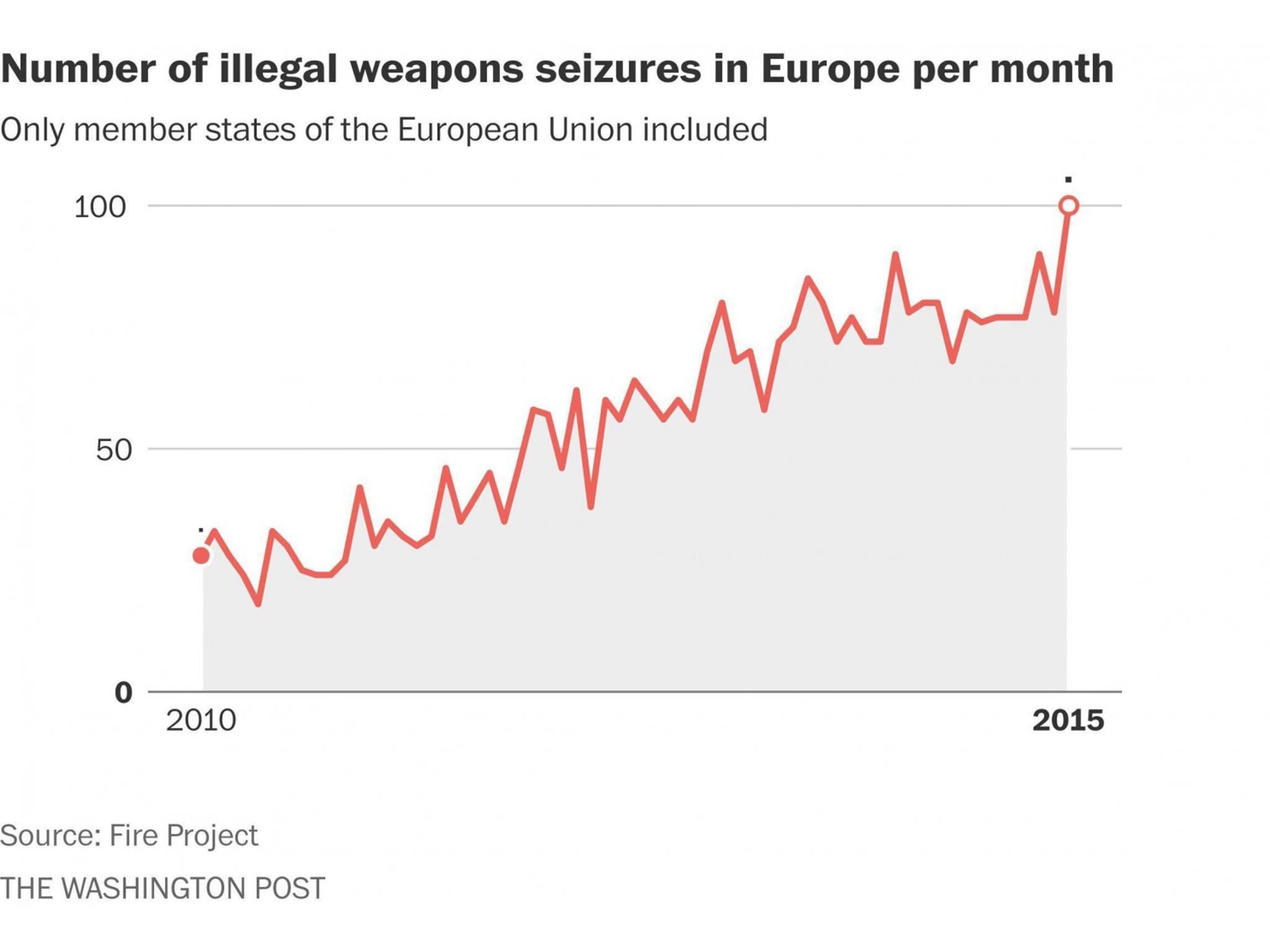
A research project funded by the European Commission also laid out Europe's vast weapons trafficking network. The “Fire Project” documents all firearms that were seized in the European Union between 2010 and early 2015.
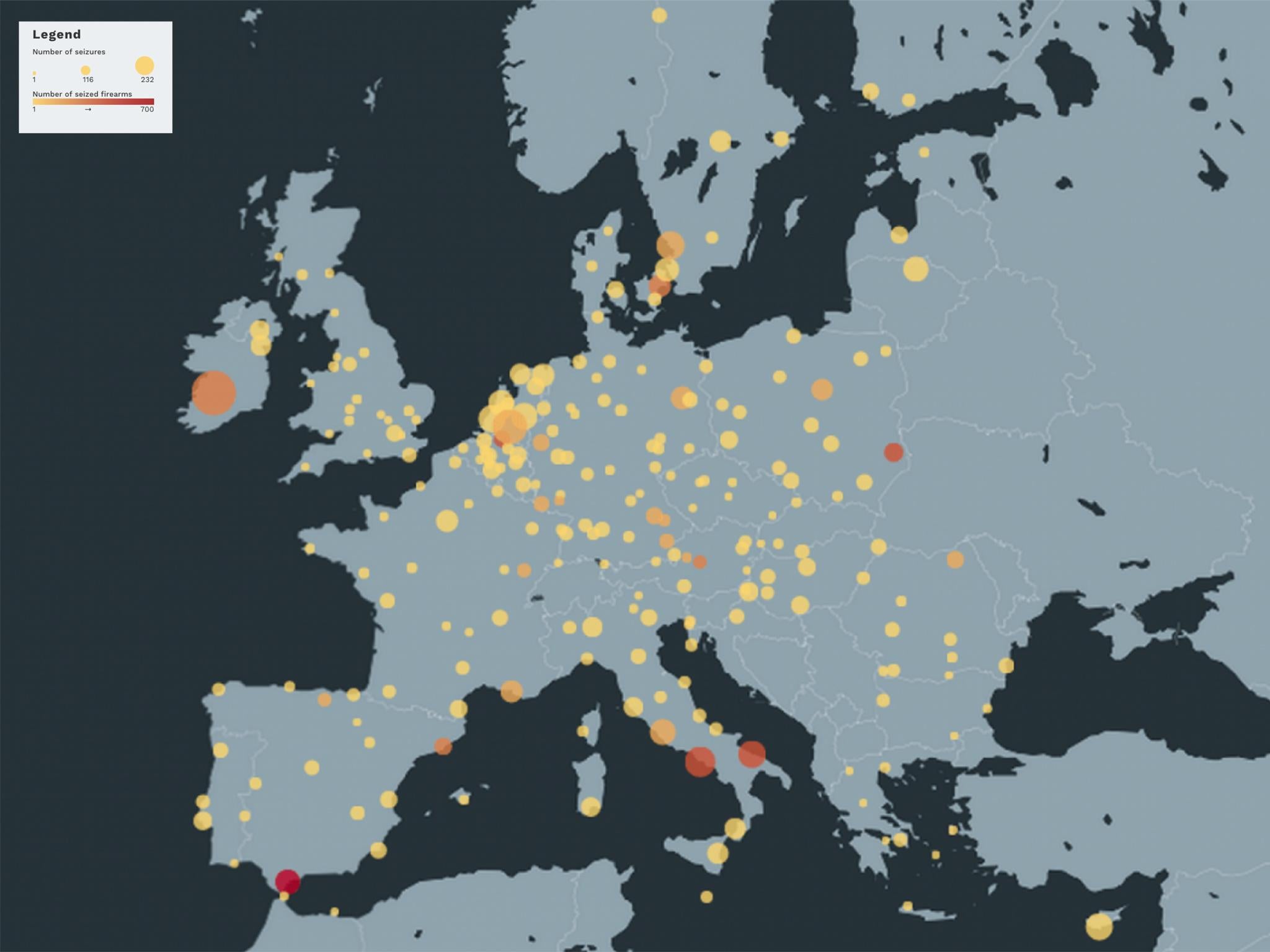
One country in Western Europe stands out among the rest: Belgium. Across the country, thousands of firearms were seized over the last few years - many more than in other Western European countries.
Many of the recent major terror attacks in Europe were planned in Belgium's capital, Brussels, where police have raided dozens of homes belonging to suspected Islamic State sympathisers or other militants. Experts, however, say that only a fraction of all illicit firearms which circulate in the small European country were found.
“What authorities focus on is gaining some time,” said Duquet. “The aim is to make sure that terrorists need extra steps to obtain a gun - for instance, one week. Every additional day you win is an extra day for authorities to intervene.”
Most trafficking takes place on land routes, rather than on ships or planes. Criminals involved in the trafficking business enter the European Union's Schengen area, where there are few border checks, through EU members Slovenia or Hungary.
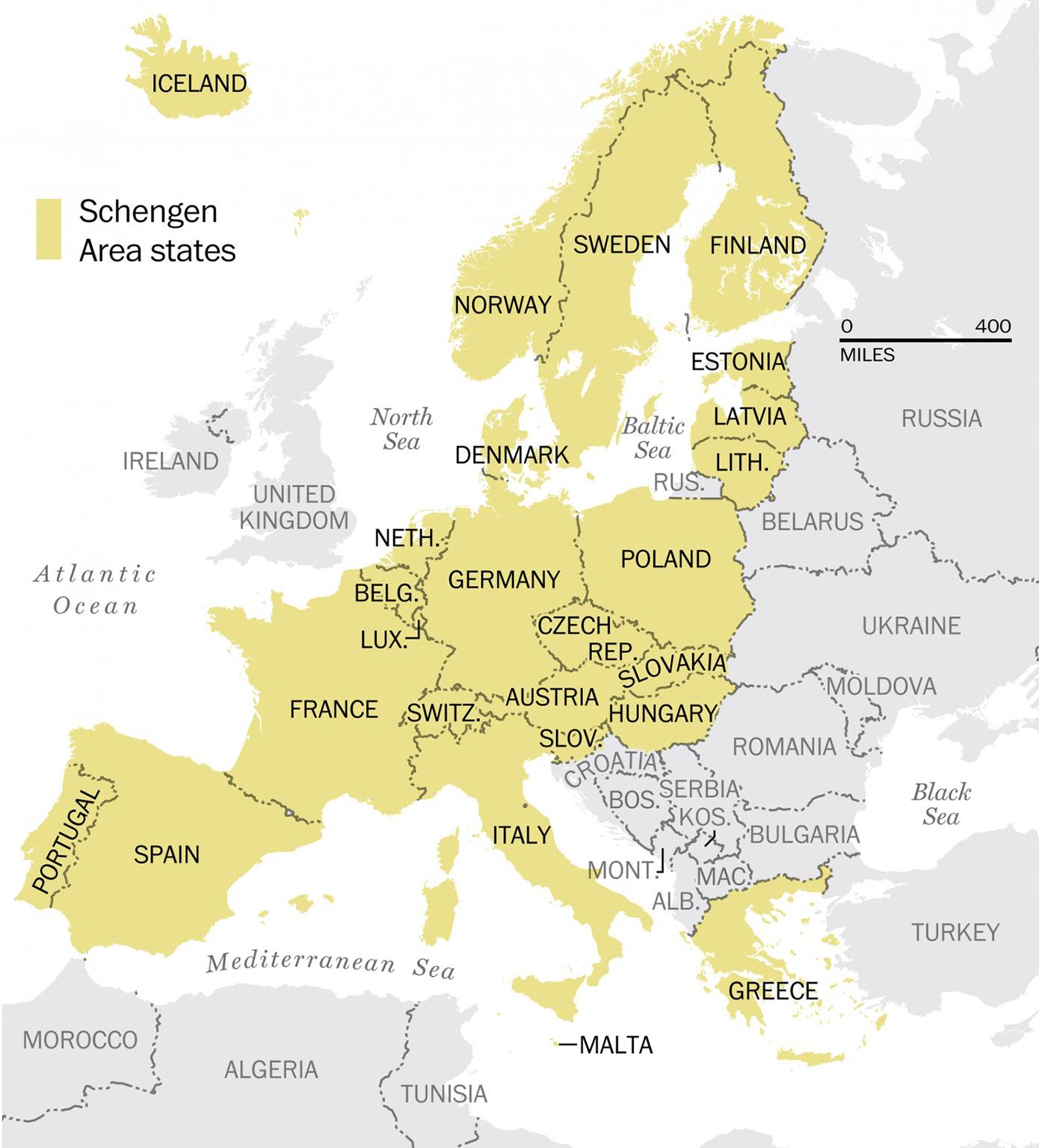
So how easy is it to cross the border into the Schengen area? A look at the chart below helps explain the answer: very easy, in most cases. So far, few EU citizens are thoroughly screened while entering the Schengen zone from outside. Whereas non-EU citizens are frequently asked to stop and have their vehicles searched, EU citizens are mostly allowed to pass.
This explains why the vast majority of those involved in firearms trafficking on European Union soil are citizens of the union. Many come from Southern Europe.
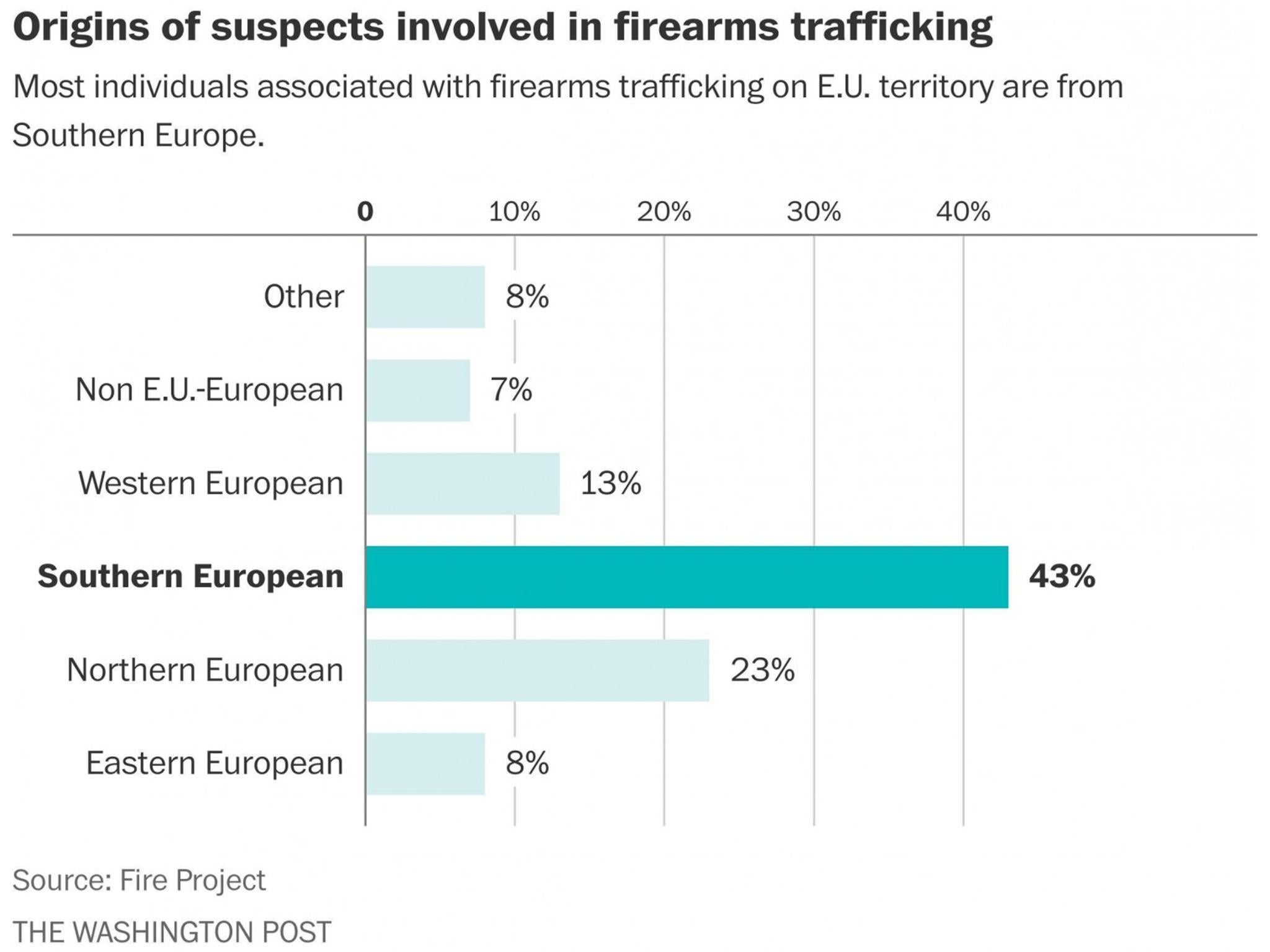
Although the vast majority of weapons smugglers are young and aged between 20 and 34, there is also a surprising number of older criminals who earn money from the business.
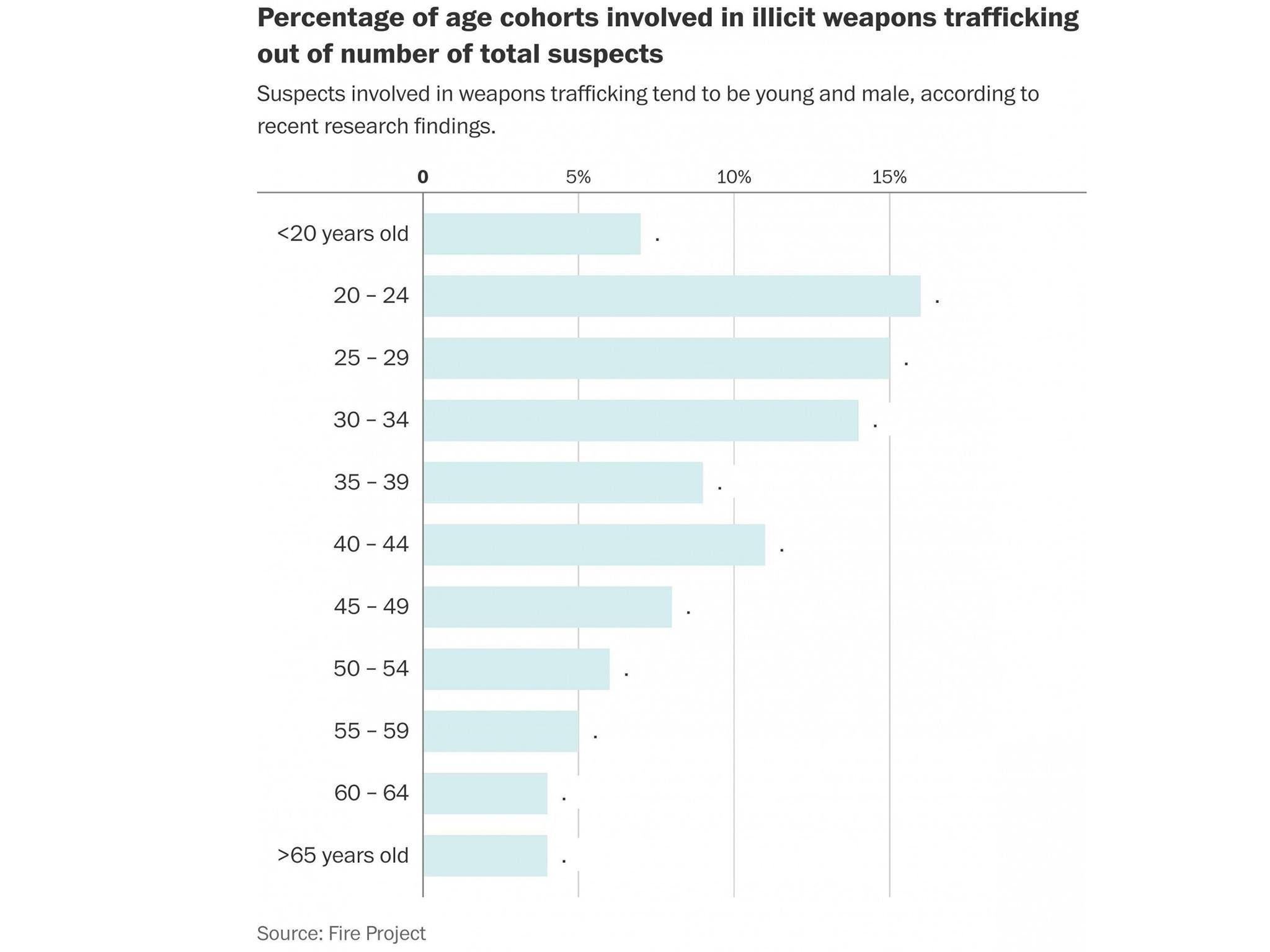
The mixed profiles of those offering illicit firearms in Europe is met by an increasingly diverse demand for the weapons on offer.
“Ten years ago you wouldn't have found Kalashnikovs in Western Europe,” said Duquet, referring to an assault rifle developed in the Soviet Union and now widely copied around the world. Tens of thousands of those weapons still circulate on the Balkans where war still raged two decades ago. Many of those weapons are now making their way to Western Europe, often smuggled in small quantities.
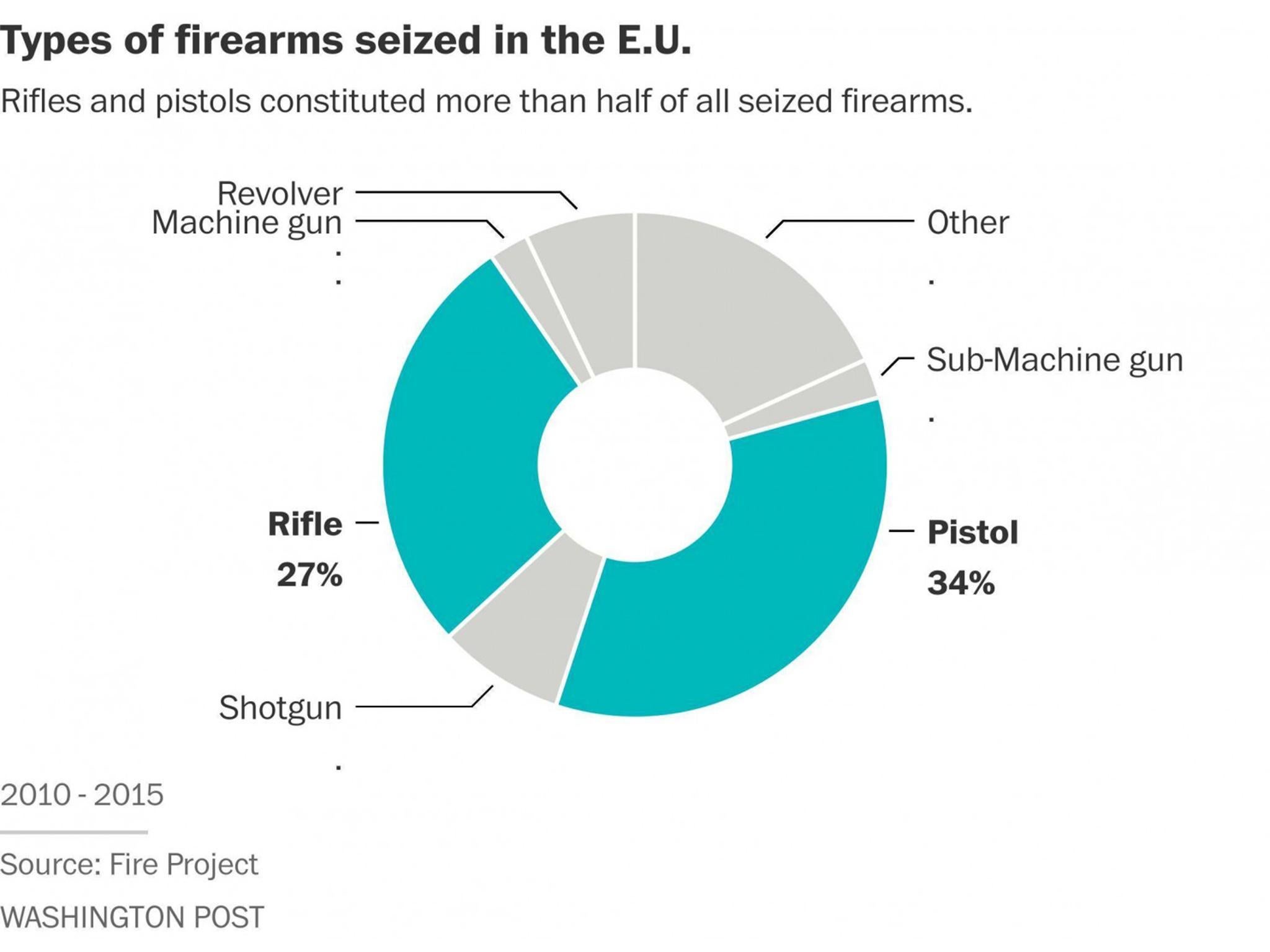
“For criminals, Kalashnikovs are not that interesting. You can't really rob a store with it,” said Duquet. “But for terrorists, Kalashnikovs are ideal. They kill many people in a short time frame.”
The Washington Post
Join our commenting forum
Join thought-provoking conversations, follow other Independent readers and see their replies
Comments